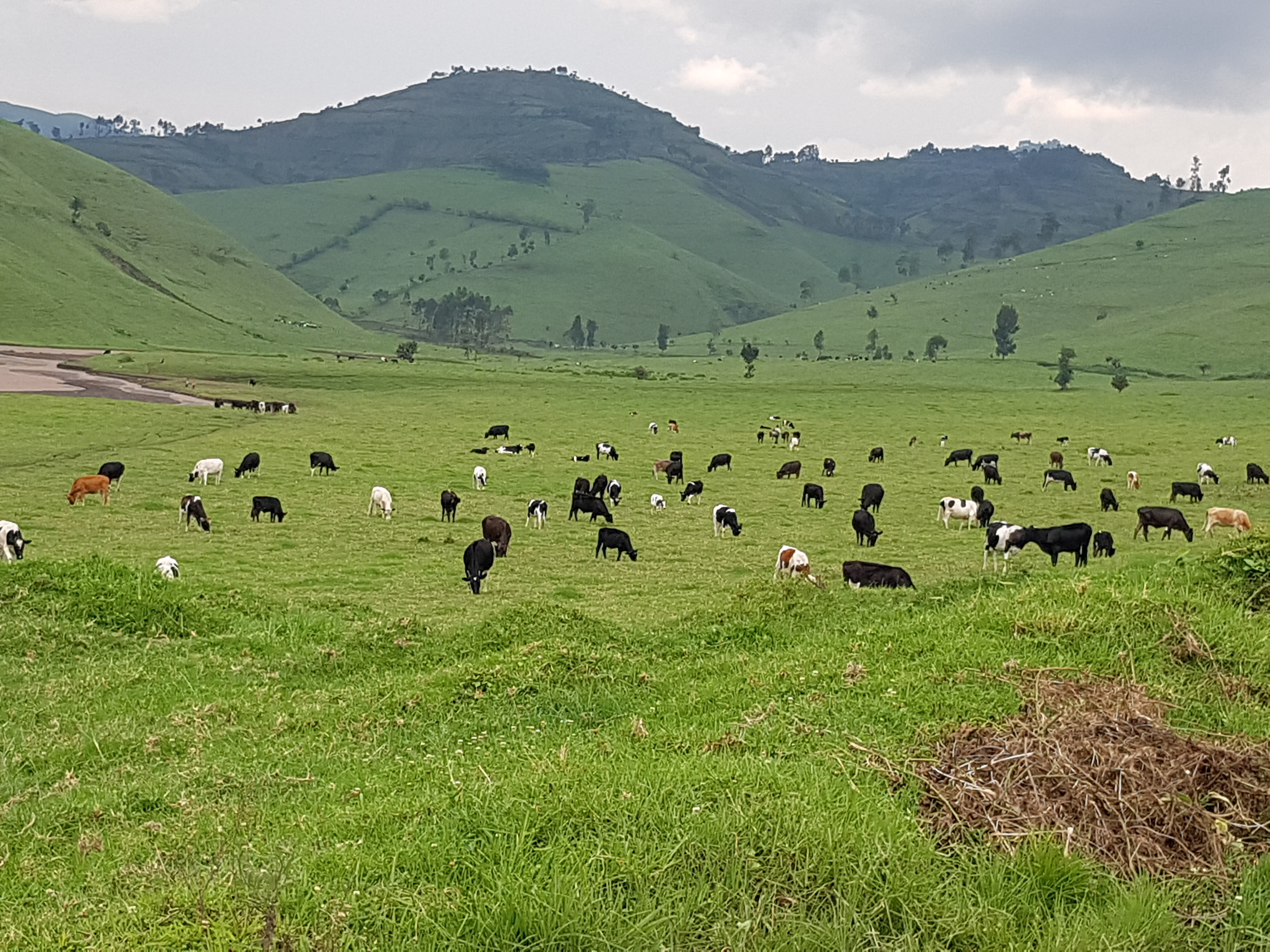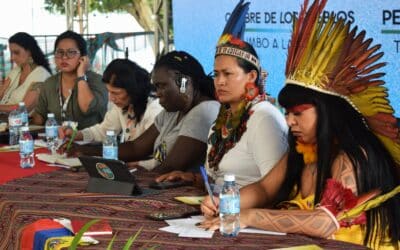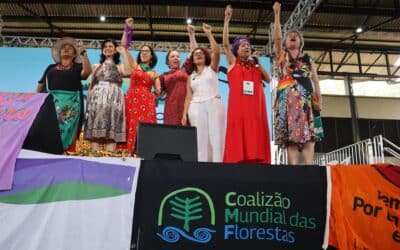Con ocasión del Foro 2025 del Comité Permanente de Finanzas, “Acelerando la acción climática y la resiliencia mediante la financiación de sistemas alimentarios y agrícolas sostenibles”, celebrado del 8 al 9 de septiembre en Roma, Italia, los movimientos del Sur Global, bajo la Campaña Global para Exigir Justicia Climática (DCJ, por sus siglas en inglés) del Grupo de Trabajo de Alimentación y Agricultura, del cual la Coalición Mundial por los Bosques (GFC) es co-líder, han publicado un poderoso nuevo informe:
The report issues a clear warning: without urgent reforms in climate finance and agricultural subsidies, the world will face worsening food insecurity, biodiversity collapse, and deepened inequities. At the same time, it provides a hopeful vision for a fairer and more just and sustainable global food system, one where smallholder farmers, especially women, are supported to lead the transition toward equitable, humane, and agroecological food systems.
Food Systems at the Heart of the Climate Crisis
Agrifood systems are the foundation of economies, cultures, and ecosystems worldwide, directly employing nearly one-third of the global population, most of them smallholder women in Asia and Africa. Yet the current industrial, corporate-dominated model is heavily reliant on fossil fuels and is responsible for around a third of global greenhouse gas emissions.
The costs of maintaining this system are staggering. In the last 30 years, disasters have wiped out $3.8 trillion in crops, livestock, and livelihoods, averaging $123 billion annually, or about 5% of global agricultural GDP.
Communities, however, are showing a different path. From rainwater harvesting in Asia, to agroecological land restoration in Africa, to community-led agroforestry in Latin America, evidence proves that agroecology strengthens resilience, cuts emissions, restores biodiversity, and sustains livelihoods.
The Climate Finance Gap
Despite their centrality, agriculture and food systems remain severely underfunded in climate finance. Just 2.5% of public climate finance goes to agriculture, and only 1.5% supports sustainable agriculture.
Meanwhile, smallholders — who produce one-third of the world’s food — face a $170 billion annual financing gap, leaving them unable to adopt climate-resilient practices.
The numbers illustrate the crisis:
- At least $1.1 trillion annually is needed to align food systems with a 1.5°C climate pathway by 2030.
- Yet only $28.5 billion per year currently flows into agrifood systems — less than 5% of global climate finance.
- The Green Climate Fund, the largest climate finance mechanism, holds just $16.7 billion, far short of the $100 billion annually pledged by Global North countries.
Instead of prioritising grants for smallholders, financing is dominated by debt-based loans from multilateral development banks, leaving farmers burdened with repayment risks. Alarmingly, smallholders already self-finance $368 billion per year just to survive.
Redirecting Harmful Subsidies
The report highlights another critical piece of the puzzle: subsidies. Agriculture receives the highest subsidies of any sector, averaging $842 billion annually from 2021–2023, and projected to nearly double by 2030.
Yet these funds overwhelmingly support industrial agriculture, including emission-intensive livestock production and feed crops, which are among the greatest drivers of greenhouse gases, biodiversity loss, and habitat destruction. Over 60% of agricultural subsidies are tied to production volumes, encouraging overproduction and intensive farming.
By contrast, public investment in agroecology makes up just 1–1.5% of total agricultural and aid budgets.
This distorted financial system entrenches harmful practices while sidelining the very solutions — agroecology, smallholder-led farming, biodiversity restoration — that could build resilience and food sovereignty.
A Call to Action
The report calls for a radical but achievable shift:
- Scale up and deliver grants-based climate finance from the Global North to the Global South, through UNFCCC mechanisms, with direct access for smallholders — especially women.
- Divert harmful subsidies from industrial agriculture and factory farming toward agroecology and sustainable food systems.
- Anchor reforms in transparency, accountability, and equity, ensuring that financing frameworks reward public goods such as soil health, biodiversity, animal welfare, and smallholder livelihoods.
- Phase out harmful subsidies, in line with global biodiversity commitments, reducing them by at least $500 billion annually while scaling up positive incentives.
As the report underscores, an equitable, humane, and agroecological food system is possible. It would be climate-resilient, locally governed, and socially just, while restoring ecosystems and reducing emissions.
With 2.5 billion people relying on agriculture for their livelihoods and more than 700 million already hungry, the stakes could not be higher. The transformation of food systems is not optional — it is essential for our collective survival.
👉 Read the full report here: Financing the Food Systems Transformation: Leveraging Climate Finance for Equitable, Humane, and Agroecological Food Systems




